Tomatoes are one of the most common items that we frequently add to our food menu. It’s because the fresh taste of tomatoes adds an extra layer of delight to our meals. That’s why they’re the best summer vegetable that you’d love to grow in your garden.
But as a gardener, you must know that tomatoes often get attacked by various kinds of pests and insects. These unwanted pests have the ability to ruin your entire harvest in an instant. For this reason, it’s often recommended to apply neem oil to save tomatoes from different types of diseases and infections. But knowing how to use neem oil on tomato plants is essential for getting the best results. So here are some tips on how to use neem oil on tomato plants that’ll keep them fresh and healthy every day.
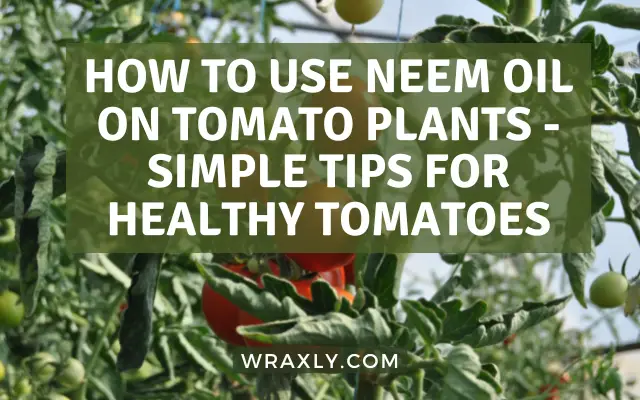
- What is Neem Oil?
- Benefits of Using Neem Oil
- Why Should You Use Neem Oil on Tomato Plants?
- Is Neem Oil Safe for Tomato Plants?
- How to Use Neem Oil on Tomato Plants?
- When to Spray Neem Oil on Tomato Plants?
- Using Neem Oil as an Insecticide
- Using Neem Oil as a Fungicide
- Using Neem Oil Against Nematodes
- Using Neem Oil as a Fertilizer
- Using Neem Oil to Treat Powdery Mildew
- Drawbacks of Using Neem Oil on Tomato Plants
- FAQ's About Neem Oil
- Final Thoughts on How to Use Neem Oil on Tomato Plants
What is Neem Oil?
We can define neem oil as a specific type of vegetable oil and it’s mostly used as a pesticide in gardens. This oil is found in the seeds of a neem tree known as Azadirachta Indica. This particular oil contains a chemical compound called “Azadirachtin,” which is very effective in removing insects and fungal bacteria from plants.
Most pesticides nowadays are made of various toxic chemicals and cause significant damage to the environment and soil. But this oil is completely organic and perfectly environment-friendly. So, if you’re looking for a natural solution to protect your garden, it can be the perfect option for you.
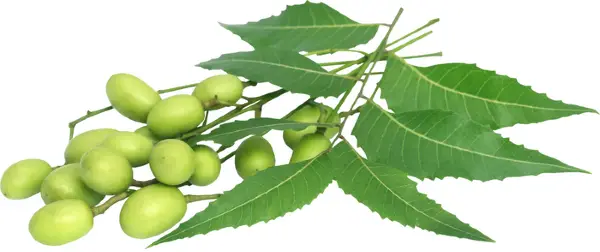
Benefits of Using Neem Oil
- Neem oil’s biggest benefit is its effectiveness as a purely non-toxic pesticide. For hundreds of years, this oil has been successfully used to repel unwanted pests from plants without harming the environment.
- Apart from preventing fungal infections, it also works well as a fertilizer. It also keeps the taste of the fruits and vegetables intact.
- This oil is 100% biodegradable, and it won’t pollute the soil in any way. It doesn’t kill any helpful insects. It’s perfectly safe for people, birds, and pets as well.
Why Should You Use Neem Oil on Tomato Plants?
If you’re growing tomatoes in your garden, you should definitely use neem oil for a better harvest. We love to eat tomatoes in our daily meals, so it’s important you apply a non-toxic solution to care for these vegetables. In that sense, this oil is perfectly suitable for tomato plants and gives better protection than most toxic pesticides. As mentioned before, it’s also a great fertilizer that can boost the growth of tomatoes. Moreover, it helps to keep the original taste of these vegetables, which is a big plus for you as a gardener.
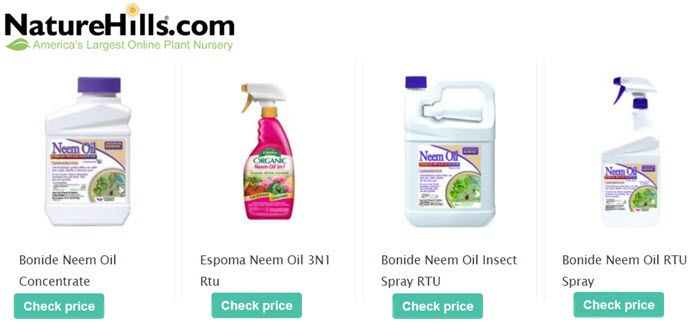
Is Neem Oil Safe for Tomato Plants?
The safety of your plants should always be a top priority for you. So, before you apply any additional elements to the garden, you should make sure that they don’t negatively affect tomato plants. That’s why it’s okay to ask if this vegetable oil is actually safe for tomato plants. You’ll be happy to know that this oil is perfectly safe for tomato plants. Although the oil can reach the roots of the plant, the tomato itself will be completely fine.
As it’s 100% toxic-free, you can even eat tomatoes right after spraying them with neem oil. But it can cause allergic reactions in many people and domestic animals. So, you must wash them thoroughly before you cook or eat the tomatoes.
How to Use Neem Oil on Tomato Plants?
The main goal of this article is to ensure that you know how to use neem oil on tomato plants in a proper manner. The right amount of this vegetable oil can substantially enhance its effectiveness. But you have to be careful because an excessive amount of this oil can significantly cause harm to tomato plants.
First, you should make a neem oil mixture by following the packaging instructions. Then, you have to spray neem oil solution all over the tomato plants. After applying neem oil for the first time, repeat the same process every two days for two weeks. After this phase, you can spray this mixture once every 14 days, based on the condition of the plants.

When to Spray Neem Oil on Tomato Plants?
Timing is very important when it comes to applying neem oil solution. Knowing when to apply this mixture is just as crucial as learning how to use neem oil on tomato plants.
It’s not advised to apply this oil mixture when the sun is too high. It’s because the oil can fry tomato plants under direct sunlight. The best time for applying a neem oil mixture is in the afternoon or evening. You can also apply this mixture early in the morning when the sun is not too hot.
To avoid further sunburn, don’t apply them if the temperature is above 90 degrees Fahrenheit. Another important tip is to apply the oil on a limited number of plants at first and look for any negative reaction. If the plants don’t have any adverse effects, proceed to apply the oil to the rest of the plants.
Using Neem Oil as an Insecticide
You can successfully use neem oil against common garden pests that can damage your plants. It can reduce plant damage by destroying the lifecycle of the insects. It can also take away the insects’ ability to fly. Pests like mites, cabbage worms, mealy bugs, locusts, and aphids can be successfully repelled by neem oil.
Using Neem Oil as a Fungicide
Tomatoes are often affected by various kinds of fungal diseases such as wilt, blight, and anthracnose. Luckily, neem oil works very well in treating these types of fungal diseases. You can even apply this vegetable oil as a preventive measure so that these fungal infections don’t occur in the future.
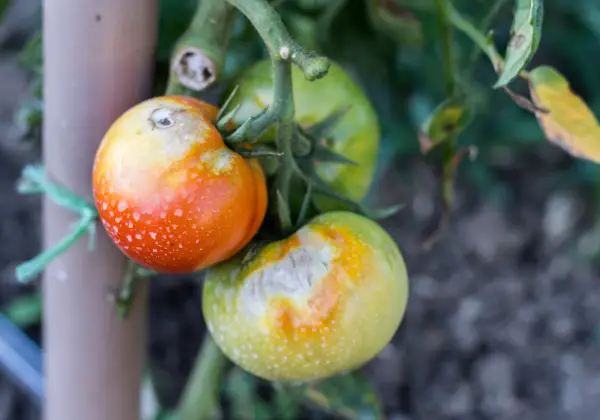
Using Neem Oil Against Nematodes
The nematodes are a great threat to a healthy tomato plant. Tomatoes can get attacked by different types of nematodes that reside on the roots of the plants. Since nematodes live inside the roots of these plants, it can be difficult to eradicate them completely. That’s where the versatility of this oil comes into play. They’re extremely efficient in killing nematodes by releasing several acids through decomposition.
Using Neem Oil as a Fertilizer
A big advantage is you can easily use neem oil as a great form of fertilizer as well. Neem oil has plenty of rich nutrients which can increase the strength of the soil. Since it’s 100% biodegradable, it can easily get mixed with the soil and provide all the ingredients the plants need. It doesn’t have any harmful substances, so the soil won’t become polluted in any way. As a fertilizer, this vegetable oil helps keep the soil-based organisms balanced.
Using Neem Oil to Treat Powdery Mildew
Powdery mildew is a common infection for tomato plants. You can easily identify these diseases because it creates a white spot on the leaves of a tomato plant. If not treated quickly, this disease can potentially kill your tomato plants.
So, if you also see the signs of this disease in your garden plants, it’s advised to use neem oil. Drenching the soil with neem oil greatly helps your affected plant. By soaking, the oil can reach the root of the plant and kill bacteria that cause powdery mildew. Using neem oil like this is also quite efficient because you don’t have to apply it frequently.
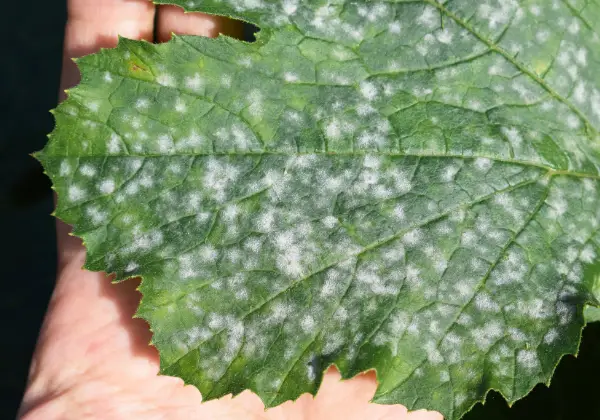
Drawbacks of Using Neem Oil on Tomato Plants
Although there are numerous benefits of using neem oil, you also need to be aware of some potential disadvantages of this oil, including:
- Neem oil doesn’t provide a quick solution to your pest problems. It takes some time for this oil to start showing its effect. So you have to be patient to see the impact of this oil on tomato plants.
- You have to apply neem oil multiple times to get the best result. To get the full benefit of this oil, you have to apply it to the plants on a regular basis.
- Even though this oil is purely organic, it can harm some beneficial insects such as ladybugs, butterflies, and bees. These insects play a positive role in tomato plants’ growth.

FOR FURTHER READING
- How far apart should you plant your tomatoes?
- How much sun do tomato plants need?
- How to pollinate tomatoes
- Tomato Tone vs. Garden Tone
- Cherokee Purple vs Black Krim – Which one to grow
- Why are your tomato leaves turning yellow?
FAQ’s About Neem Oil
Yes, neem oil does kill spider mites. To effectively kill spider mites, it depends on the severity of the infestation. For a light infestation, once every 7 to 10 days should be sufficient. For a more moderate infestation, every 3 to 5 days. For a severe infestation, every other day.
Yes, neem oil can kill fungus gnats. To use neem oil to kill fungus gnats, add a few drops of neem oil to water and spray it on the affected area.
Yes, neem oil can be used on indoor plants as an effective means of controlling pests. It is best to apply neem oil every 7-14 days to keep pests at bay.
Neem oil does not kill ants.
Final Thoughts on How to Use Neem Oil on Tomato Plants
Taking care of your tomato plants need not be too complicated; you just need to have the right set of facts. One of the easiest and best ways to safeguard your plants is to utilize neem oil. Knowing how to use neem oil on tomato plants can effectively prevent pests and other insects from damaging your fresh tomatoes. Use the tips you just learned in this article to keep your tomato plants pest-free and help them grow and thrive perfectly.

Darrell has a passion for gardening that he inherited from his father. Go here to read more about the influence his father played in his love for gardening. If you want to send Darrell a quick message, then visit his contact page here.
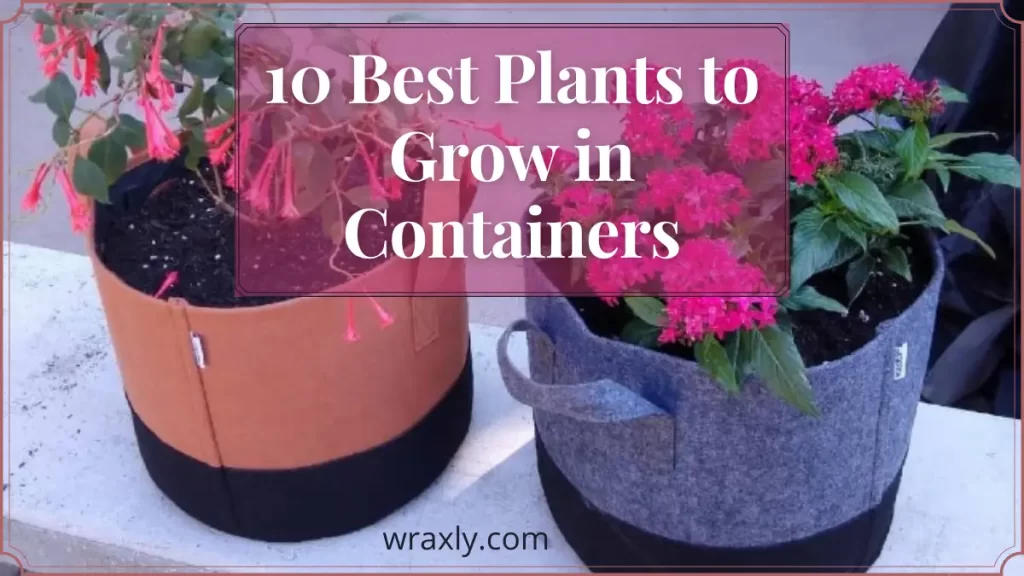
![How to Water Indoor Plants [Plant Care 101]](https://wraxly.com/wp-content/uploads/2021/03/How-to-Water-Indoor-Plants-Plant-Care-101-1200-1024x576.webp)
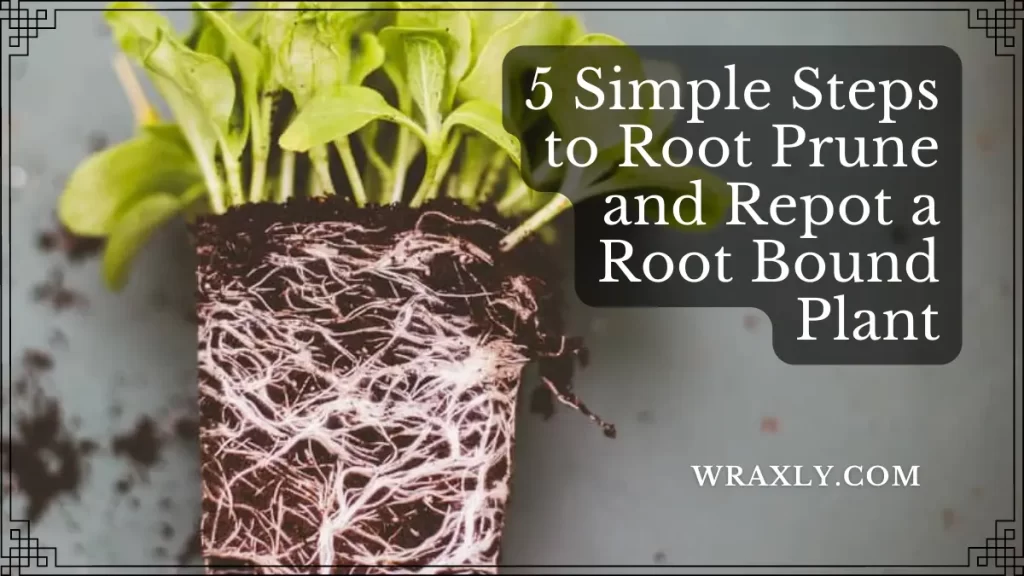
![Growing Plants from Cuttings [A Simple Guide]](https://wraxly.com/wp-content/uploads/2021/03/Growing-Plants-from-Cuttings-A-Simple-Guide-1200-1024x576.webp)